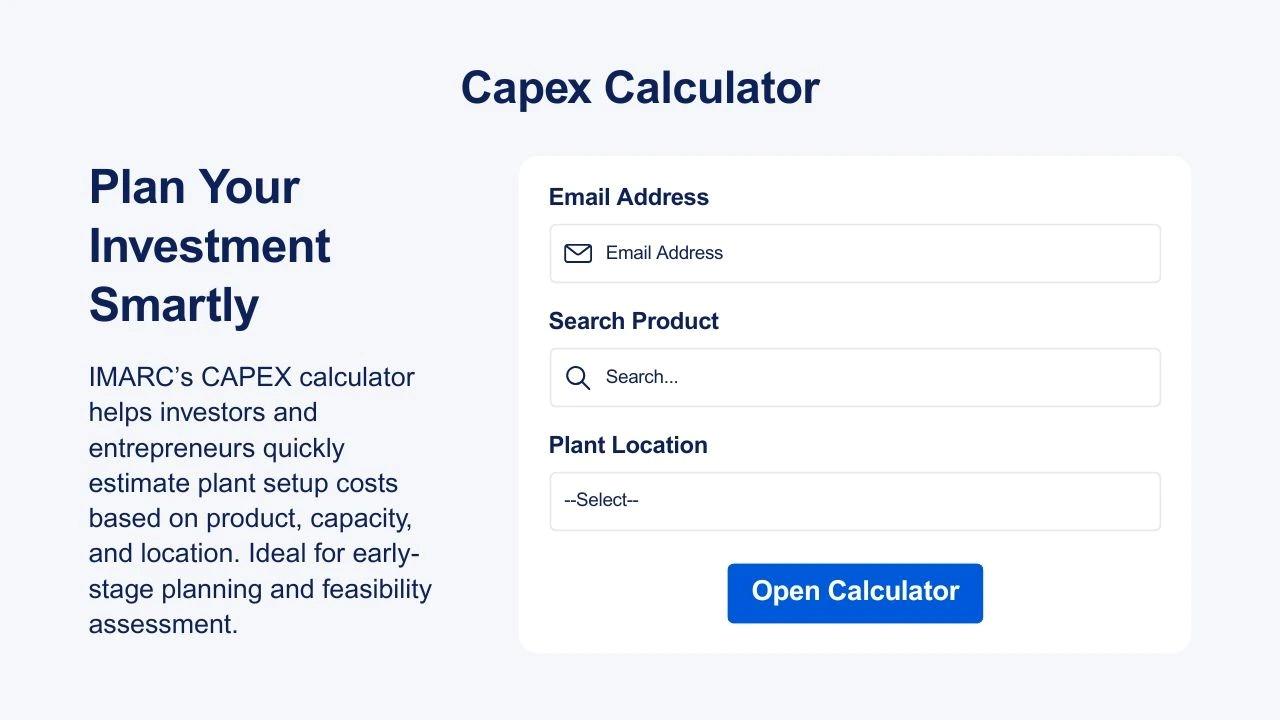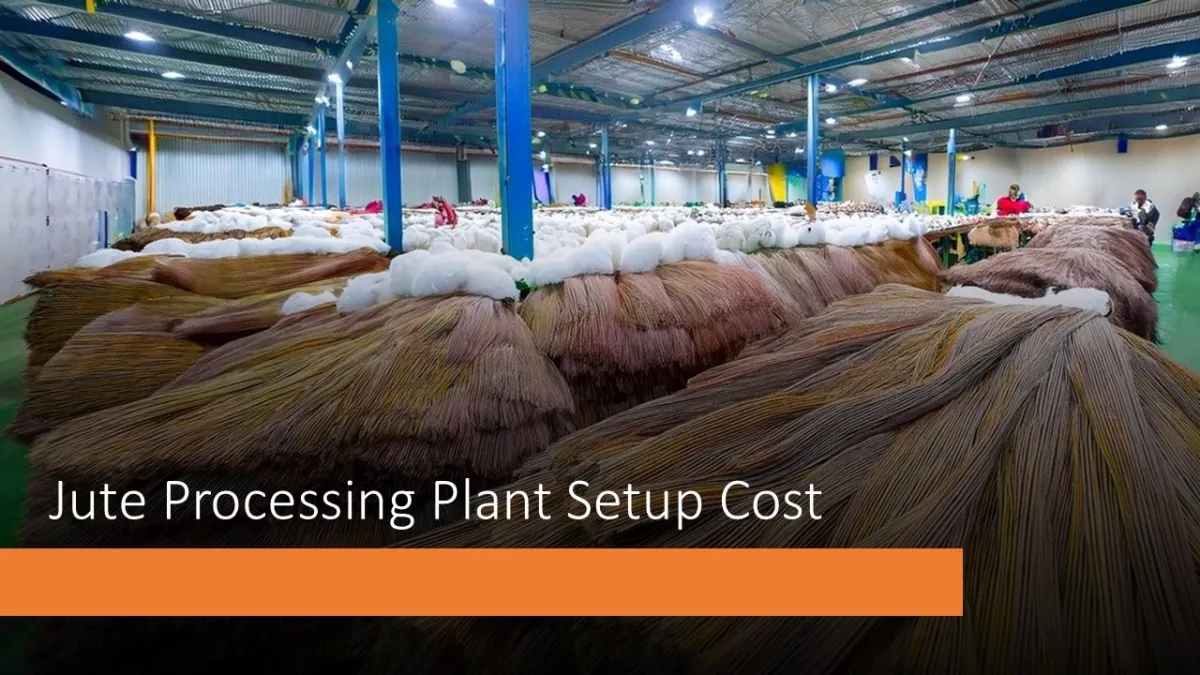
Jute Processing Plant Setup Report 2025: Business Plan, And Cost Analysis
IMARC Group's report titled“ Jute Processing Plant Project Report 2025: Industry Trends, Plant Setup, Machinery, Raw Materials, Investment Opportunities, Cost and Revenue ” offers a comprehensive guide for establishing a jute processing plant, covering everything from product overview and production processes to detailed financial insights.
Request Sample: https://www.imarcgroup.com/jute-processing-plant-project-report/requestsample
Jute is a natural fiber obtained from the stems of the jute plant, primarily grown in tropical regions such as India and Bangladesh. Known as the“golden fiber” for its silky sheen and golden color, jute is eco-friendly, biodegradable, and highly versatile. It is widely used to make products like sacks, ropes, mats, carpets, and eco-bags. Jute fibers are strong, durable, and have good insulating properties, making them valuable for both industrial and household purposes. Its sustainable nature and low production cost make it a preferred material in various manufacturing and packaging industries worldwide.
The global jute industry is witnessing steady growth, driven by rising environmental awareness and the demand for sustainable alternatives to synthetic fibers. Governments and international organizations are promoting jute as part of their eco-friendly policies, particularly for packaging and agricultural applications. The ban on single-use plastics in many countries has boosted the use of jute bags, sacks, and other biodegradable products. Advances in jute processing technology have enhanced fiber quality, enabling its application in home décor, fashion, and even automotive interiors. Additionally, the expansion of e-commerce has increased the demand for strong, eco-friendly packaging materials. Key producing countries like India and Bangladesh are investing in modernizing jute mills and promoting jute-based diversified products to cater to both domestic and export markets. Growing consumer preference for organic and sustainable lifestyles, coupled with supportive government subsidies, is expected to drive significant growth in the sector. Moreover, research into blending jute with other fibers is creating new opportunities in textiles and composites, making jute a competitive choice in the global natural fiber market.
Request For Customization: https://www.imarcgroup.com/request?type=report&id=10301&flag=E
Key Steps Required to Set Up a Jute Plant
1. Market Analysis
The report provides insights into the landscape of the jute industry at the global level. The report also provides a segment-wise and region-wise breakup of the global jute industry. Additionally, it also provides the price analysis of feedstocks used in the processing of jute, along with the industry profit margins.
. Segment Breakdown
. Regional Insights
. Pricing Analysis and Trends
. Market Forecast
2. Product Processing: Detailed Process Flow
Detailed information related to the process flow and various unit operations involved in the jute processing plant project is elaborated in the report. These include:
. Land, Location, and Site Development
. Plant Layout
. Plant Machinery
. Raw Material Procurement
. Packaging and Storage
. Transportation
. Quality Inspection
. Utilities
. Human Resource Requirements and Wages
. Marketing and Distribution
3. Project Requirements and Cost
The report provides a detailed location analysis covering insights into the plant location, selection criteria, location significance, environmental impact, and expenditure for jute processing plant setup. Additionally, the report also provides information related to plant layout and factors influencing the same. Furthermore, other requirements and expenditures related to machinery, raw materials, packaging, transportation, utilities, and human resources have also been covered in the report.
Machinery and Equipment
. List of machinery needed for jute production
. Estimated costs and suppliers
Raw Material Costs
. Types of materials required and sourcing strategies
Utilities and Overheads
. Electricity, water, labor, and other operational expenses
4. Project Economics
A detailed analysis of the project economics for setting up a jute processing plant is illustrated in the report. This includes the analysis and detailed understanding of capital expenditure (CAPEX), operating expenditure (OPEX), income projections, taxation, depreciation, liquidity analysis, profitability analysis, payback period, NPV, uncertainty analysis, and sensitivity analysis.

Capital Expenditure (CAPEX)
. Initial setup costs: land, machinery, and infrastructure
Operating Expenditure (OPEX)
. Recurring costs: raw materials, labor, maintenance
Revenue Projections
. Expected income based on production capacity, target market, and market demand
Taxation
Depreciation
Financial Analysis
. Liquidity Analysis
. Profitability Analysis
. Payback Period
. Net Present Value (NPV)
. Internal Rate of Return
. Profit and Loss Account
Uncertainty Analysis
Sensitivity Analysis
Economic Analysis
5. Legal and Regulatory Compliance
. Licenses and Permits
. Regulatory Procedures and Approval
. Certification Requirement
6. Hiring and Training
. Total human resource requirement
. Salary cost analysis
. Employee policies overview
The report also covers critical insights into key success and risk factors, which highlight the aspects that influence the success and potential challenges in the industry. Additionally, the report includes strategic recommendations, offering actionable advice to enhance operational efficiency, profitability, and market competitiveness. A comprehensive case study of a successful venture is also provided, showcasing best practices and real-world examples from an established business, which can serve as a valuable reference for new entrants in the market.
About Us:
IMARC is a global market research company offering comprehensive services to support businesses at every stage of growth, including market entry, competitive intelligence, procurement research, regulatory approvals, factory setup, company incorporation, and recruitment. Specializing in factory setup solutions, we provide detailed financial cost modelling to assess the feasibility and financial viability of establishing new processing plants globally. Our models cover capital expenditure (CAPEX) for land acquisition, infrastructure, and equipment installation while also evaluating factory layout and design's impact on operational efficiency, energy use, and productivity. Our holistic approach offers valuable insights into industry trends, competitor strategies, and emerging technologies, enabling businesses to optimize operations, control costs, and drive long-term growth.
Contact Us:
IMARC Group
134 N 4th St. Brooklyn, NY 11249, USA
Email: sales[@]imarcgroup.com
Tel No:(D) +91 120 433 0800
United States: +1-201971-6302
Legal Disclaimer:
MENAFN provides the
information “as is” without warranty of any kind. We do not accept
any responsibility or liability for the accuracy, content, images,
videos, licenses, completeness, legality, or reliability of the information
contained in this article. If you have any complaints or copyright
issues related to this article, kindly contact the provider above.

















Comments
No comment